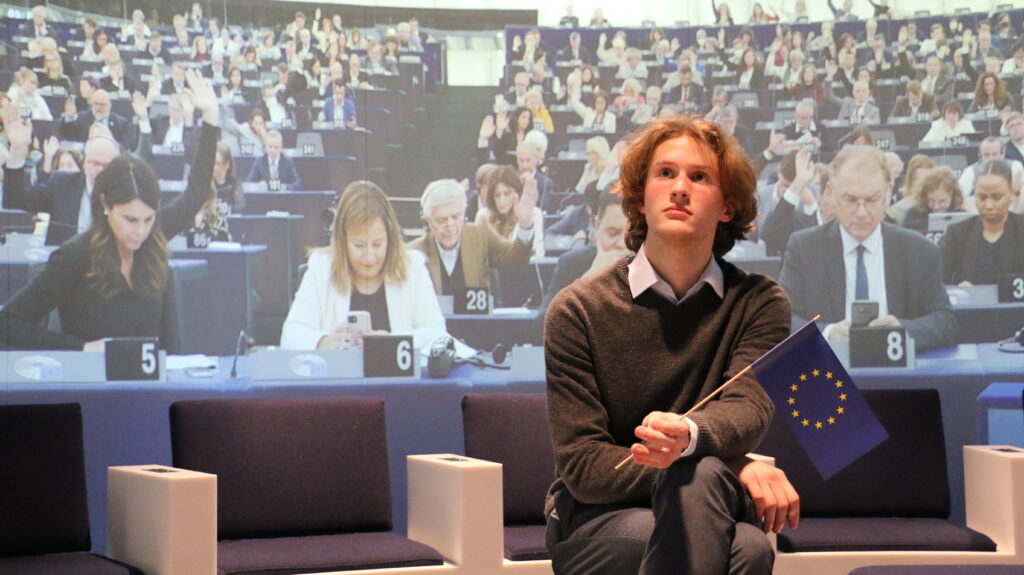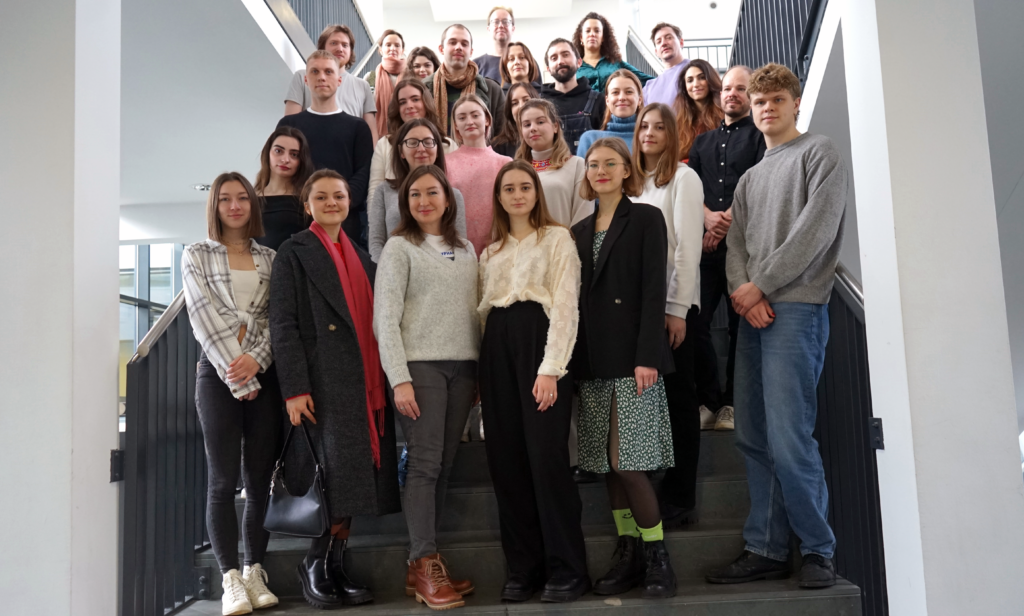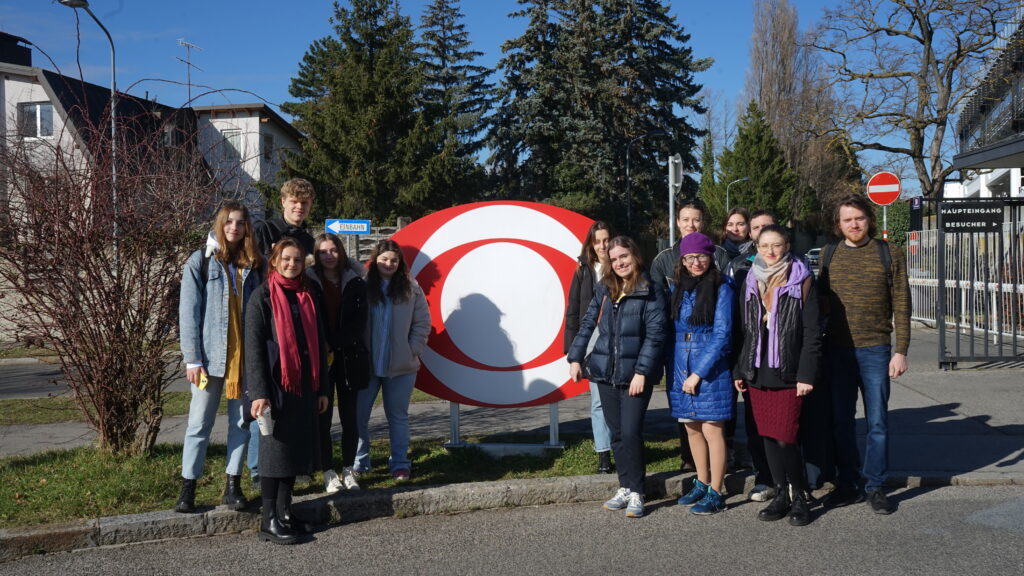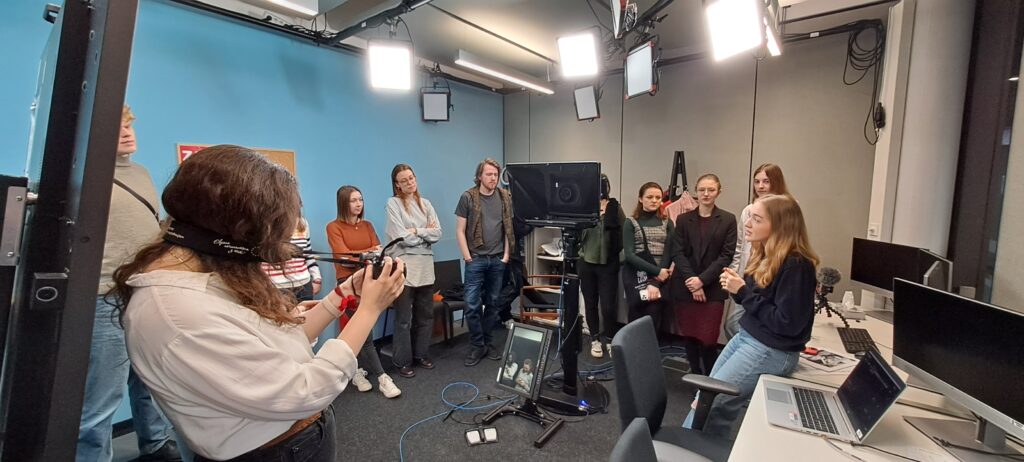What does it mean to be a European in 2024 and what does Europe mean to young people? These key questions were the focus of the ninth edition of the International School of Multimedia Journalism (ISMJ), which took place from February 12-17, 2024, under the motto “This is (also) Europe!”.
This year’s European Parliament elections and the interest of Georgia and Ukraine in joining the EU inspired the ISMJ to take a look at Europe. Participants from Denmark, Georgia, Austria and Ukraine discussed issues such as identity, migration and flight, homelessness as a European challenge and the attitudes of young Europeans.
Journalism training in a cross-cultural environment
Within a week, the groups had to research topics, create storyboards, shoot interviews and write copy. The participants had the opportunity to get to know the city of Vienna and its culture as a balance to the intensive group work. During a tour of ORF, Austria’s public broadcaster, the young journalists got to see the new multimedia newsroom. Ambra Schuster, presenter of the ORF news on TikTok and an ISMJ alumna herself, gave the participants a fascinating insight into her work. She also spoke about her own experiences at the ISMJ. Several dinners provided a relaxed atmosphere for informal exchange and networking. Participants had the opportunity to get to know each other and share their experiences and perspectives.
Investigativer Journalismus in der EU
Alexander Fanta, investigative EU journalist at Follow the Money, explained the EU’s working methods and how journalists can use them. He presented the most important resources and tools for research. These included the EU Transparency Register and the various databases of the EU institutions.
“Key to any investigation on the EU is learning to use EU ressources, such as the websites of the institutions, as well as third-party websites that make EU open data easily accessible.” Alexander Fanta
Using specific examples, he showed the participants the importance of investigative EU journalism. The young journalists also received valuable tips and suggestions for their work.
Overview of the projects
In the course of the group work, the participants learned how to deal with differences in journalistic work. The students also had to overcome language and cultural barriers. The result were five multimedia reports, each with a unique perspective on the topic.
- Shaping Europe of Tomorrow – Young Voices from Georgia to Denmark
- Operation Identity – Exploring Ukrainian Refugee’s Connection to their Homeland
- Looking for a safe place – How refugees live after arriving in the European Union
- Homeless in Europe
- Echoes of Europe: Stories from the Georgian and Ukrainian Diaspora in Vienna
We would like to thank our project partners and all participants for their commitment to this project. Due to the war, the second project week cannot take place at our partner university in Lviv, Ukraine. However, thanks to the help of the OeAD Cooperation Office Lviv and the Austrian Cultural Forum Warsaw, we were able to organize a week in the Polish capital Warsaw as an alternative location. Thank you for your valuable support!
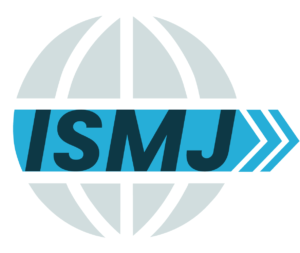
About the International School of Multimedia JournalismThe ISMJ was established after the annexation of Crimea and the start of the Russian-Ukrainian war in 2014. The project is a collaboration between the Journalism & Media Management study programs at FHWien der WKW, the Ukrainian Catholic University of Lviv and the OeAD Cooperation Office in Lviv. It`s aim is to strengthen the connection between the two countries and send a signal of support for Ukraine. Since the second year of its existence, the Danish School of Media and Journalism and the Georgian Institute of Public Affairs have also participated as additional project partners. The project is implemented with the financial support of the Federal Ministry of Education, Science and Research (BMBWF), the OeAD Cooperation Office Lviv/Lemberg, the OeAD-GmbH, the City of Vienna and the Cultural Section of the Federal Ministry for Europe, Integration and Foreign Affairs (BMEIA). Further information about the ISMJ can be found on the project website at https://multimediajournalism.eu/. |
